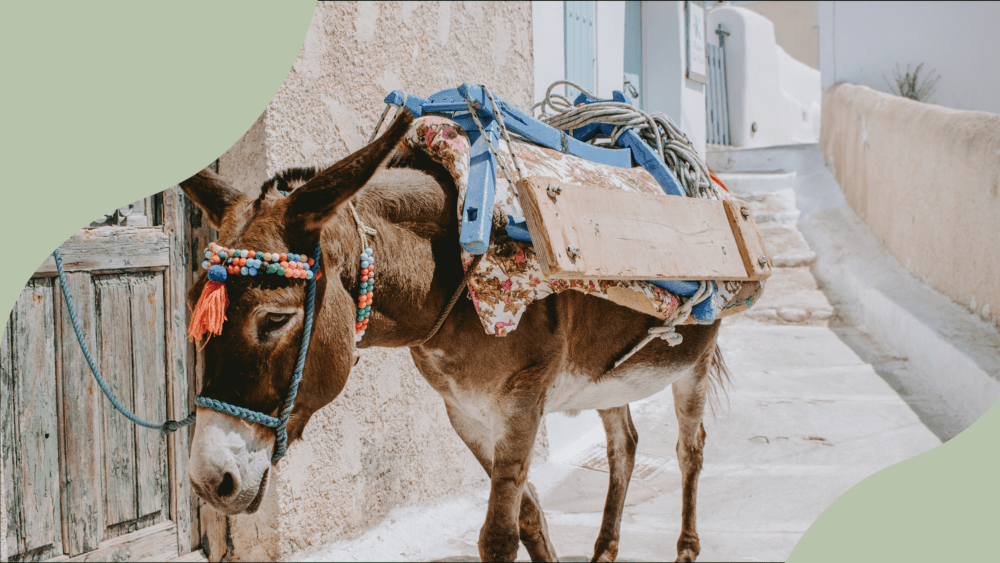“Behold, your king is coming to you; He is just and endowed with salvation, Humble, and mounted on a donkey, Even on a colt, the foal of a donkey.” —Zechariah 9:9 (NASB1995)
When Jesus was born, it’s likely that there were animals nearby, even in the very same room. None of these animals are mentioned in the Gospel accounts, but it seems appropriate for modern Nativity sets to include small figurines of oxen and donkeys—beasts of burden designed to carry heavy loads.
Throughout history and Scripture we see oxen and donkeys assisting humans in the hard labor of life, saddled with heavy objects or pulling plows to prepare fields for new crops. In fact, the Greek word for donkey translates to “an animal under the yoke.”
We can’t know for sure if there was an ox or a donkey present when Jesus entered the world. But if there was, it would have been abundantly fitting—the One who would bear the weight of the world’s sins, honored by animals that have long borne the weight of others.
In Niger, oxen play a vital role in caring for marginalized communities. In the villages where Frontier Fellowship’s partner Eglise Evangélique de la République du Niger (EERN) works, there is little access to medical care. EERN uses oxen and carts to transport injured or sick villagers to the closest doctors and hospitals. Additionally, oxen pull agricultural equipment on farms that help provide EERN’s K-12 schools with healthy food and necessary supplies. In each of these applications, oxen help provide services that also create opportunities for church planters to share the Gospel with least-reached peoples.
Jesus reminds us that His yoke is easy and His burden is light (Matthew 11:30). He directly aligns Himself with oxen, donkeys and all those who find themselves laboring under heavy loads they cannot carry on their own. What in your life is too heavy to bear on your own? Offer it to Jesus! As you walk with Him, how might you help bear the burdens of others?


Comments are closed.